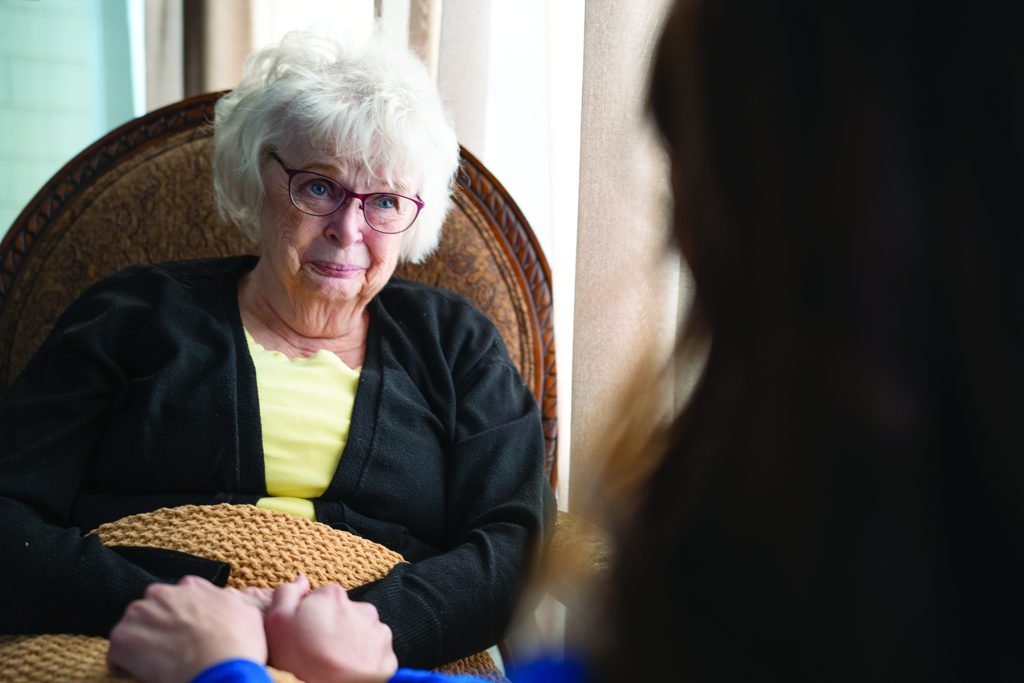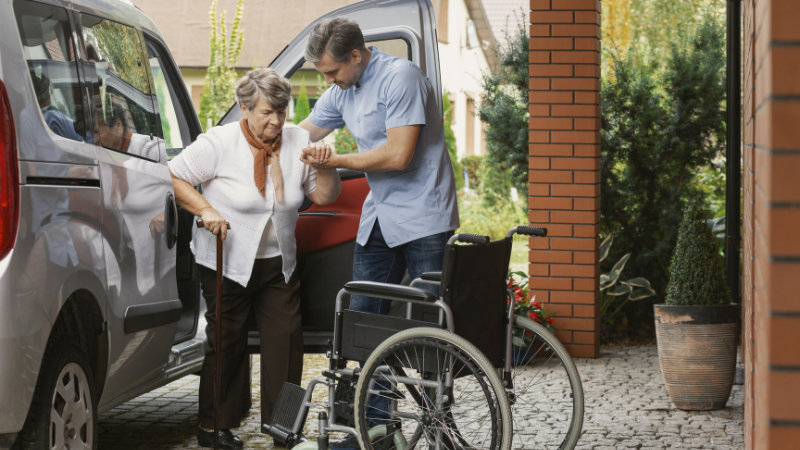

One in four individuals aged 60 and over lives alone in the US—this amounts to 16.7 million seniors. When emergencies arise or they need help, these older adults don’t have family to turn to. They can, however, rely on the following resources and solutions for support.
Key Takeaways:
Many seniors in the US live alone, especially older women and those without close family ties. To maintain independence, they can build a support network, manage medications, prepare finances, modify their homes for safety, and find reliable transportation. Utilizing resources like medical alert systems, local agencies, and home care services can help ensure their well-being and provide essential support.
Who is likely to live alone?
The population of aging people in the US is growing and will continue to grow over the next several decades, meaning more seniors are choosing to live alone. Older women are more likely to live alone since they generally outlive men and have longer life expectancies.
Besides elderly women, other seniors are more likely to live alone. Older adults can, at any point, find themselves without a spouse, adult children, or other relatives to rely upon. Some aging people are more at risk for being in situations with an insufficient social support system.
Isolated seniors, those who never married, and adults who are divorced or widowed tend to have a smaller family support network. Aging people who are single and never had children or those with estranged children also have fewer people to help care for them.
What are solutions and resources to support seniors who live alone?
The elderly living without family are advised to prepare well in advance for their future. They must consider several important factors to maintain their independence, such as finances, medication management, transportation, companionship, health care, food, and household maintenance.
1. Build a Support Network
Maintaining independence starts with building a support network. Seniors who participate in a social hobby can make friends and rely on them. Try joining a community garden, a book club, or a craft group. Volunteer to form relationships with like-minded people who work toward the same goal.
Become familiar with the neighbors, who may offer to take out the trash or take care of pets when needed. Support groups are also good places to find others in similar situations and learn how they cope with challenges. Facebook groups connect seniors with others.
2. Manage Medications
About 90 percent of seniors take at least one prescription drug. Medication compliance is key to maintaining health. Older adults should manage their medications by using a pill organizer and a smartphone app to remind them when to take their next dose.
3. Prepare Finances
Seniors without family must prepare for the possibility that they may become incapacitated and unable to manage their finances. They should place assets in a trust and appoint themselves as the trustee while they are capable and another trustee if they become unable to manage it.
Designating a durable power of attorney is also advised as the individual will make financial decisions on the senior’s behalf. Older adults who struggle paying recurring bills might set up automatic payments. Hiring a financial advisor or CPA may be helpful when reconciling bank statements.
4. Modify the Home
Performing the activities of daily life, such as bathing, eating, and mobility, is necessary for elderly individuals who aim to maintain their independence. Living in a senior-friendly home keeps them safer. Add grab bars to the bathroom to prevent slips and falls and extra lighting to stairs.
Consider who will help with lawn care, light housekeeping, and mobility issues. Seniors who live without family might rely on a neighbor or a professional caregiver to help with light household chores. Be aware that the cost of a professional caregiver is less than that of a retirement community.
5. Find Transportation
Staying connected with the community is vital for seniors who live without family. But when older adults no longer drive, they must rely on other transportation options. Seniors can get to community events with the help of public transportation, volunteer driver services, and professional caregivers.
6. Wear a Medical Alert System
Wearing a medical alert system provides older people who live alone with extra peace of mind and a sense of security. Medical alert systems come with fall detection features that trigger a notification to the monitoring center staff, who dispatch emergency help.
7. Connect with Resources
Older adults are urged to connect with local resources to provide support as they age alone. The National Council on Aging offers invaluable services to the elderly. AARP benefits seniors who live alone through its programs, resources, and advocacy efforts addressing Medicare and Social Security.
Area agencies on aging connect the elderly to community-based programs that provide nutrition assistance, home repairs, and social opportunities. Eldercare Locator similarly helps seniors find local health, housing, transportation, and insurance benefits resources.
Don’t forget local senior centers, where the elderly can join fitness programs, take educational classes and participate in social events. Older people who cannot cook for themselves rely on Meals on Wheels to gain access to nutritious meals and social support.
Seniors living without family mustn’t overlook the value found in home care agencies, like Assisting Hands Home Care. We offer dedicated elder care services that meet the daily non-medical care needs of the senior population. In-home care allows seniors to age in place and remain in their community.
Our home health care services are comprehensive. Professional caregivers are tasked with a wide variety of duties, such as providing transportation and escort to medical facilities and senior centers. We give timely medication reminders, perform light housekeeping, and prepare balanced meals.
Companion care is ideal for older adults who live alone. Caregivers socialize with care recipients through pleasant conversations, taking them on outings, playing card games, and encouraging them to pursue hobbies. Social engagement prevents seniors from feeling lonely and depressed.
Assisting Hands Home Care is available to seniors who live with a chronic health condition or who simply want extra support at home. We offer compassionate Alzheimer’s care, hospice care, and post-surgical care, among other options. Caregivers routinely inspect the home for fall risks and remove them.
The professional caregivers at Assisting Hands Home Care are solutions for seniors living without family. We promote their physical, emotional, and social well-being through quality home health care. Schedule a free in-home consult today and learn how home caregivers can be an invaluable source of support.



